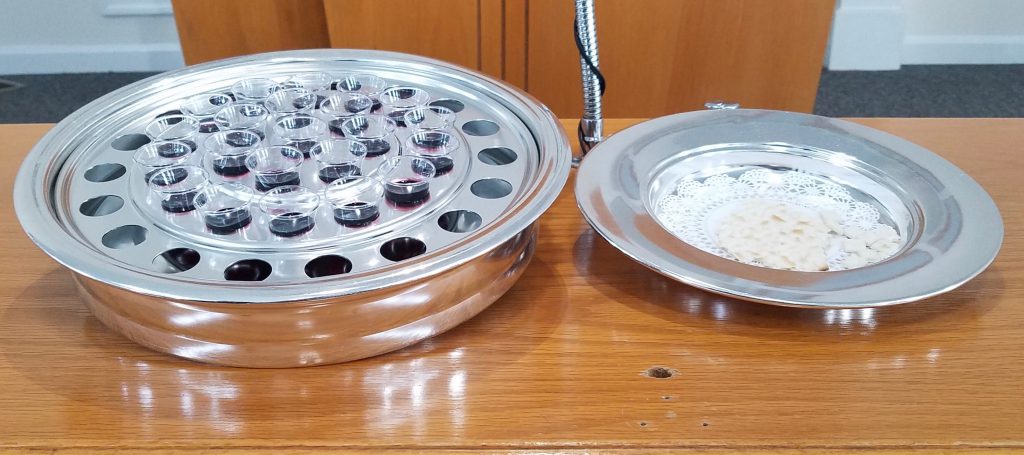Lord's Supper

To fully understand Jesus establishing the practice of partaking of the Lord’s Supper, one must first understand the context of the Jewish Passover feast. That context can be learned in Exodus chapters 6 through 12. With the Passover serving as a remembrance of the Lord’s deliverance of His people from the captivity in Egypt, it became the perfect setting to establish remembrance of the Lord’s deliverance of mankind from it’s captivity in sin. In Matthew 26: 26-27, Jesus explained this to His disciples when he ascribed a new significance to two elements present in the Passover- the unleavened bread and the fruit of the vine. It didn’t take long for people to lose sight of this purpose, though. In 1 Corinthians 11: 23-34, the Apostle Paul had to remind those in Corinth about conducting themselves according to Jesus’ instructions. They had begun to alter the memorial to suit their own purposes, thus becoming displeasing to the Lord.
According to the example of the Christians from the first century, we partake of the Lord’s Supper every first day of the week as is shown in Acts 20: 7.